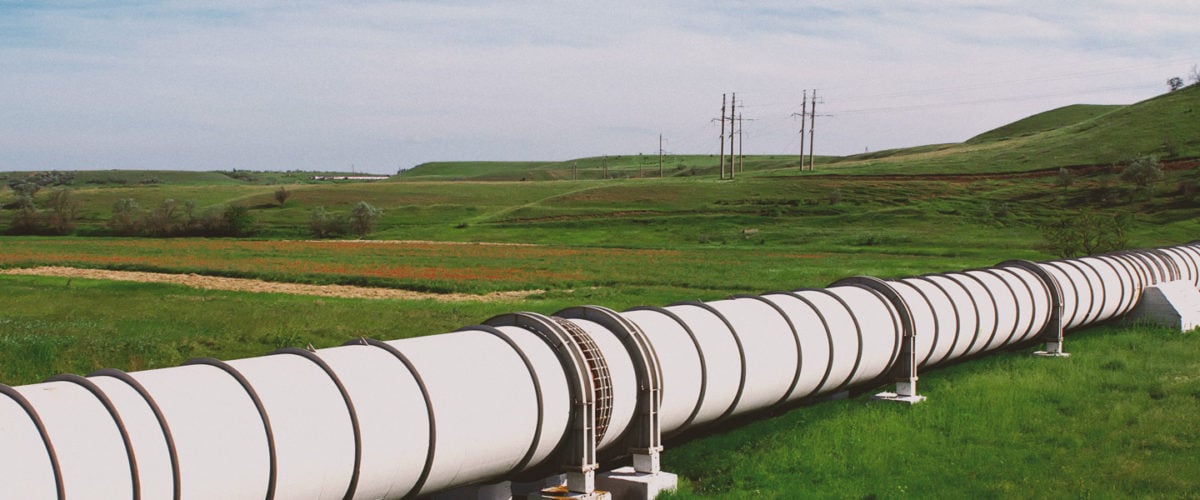How Food & Water Watch Is Fighting Carbon Pipelines
Published Aug 11, 2022

Before three hazardous pipelines can break ground in Iowa, corporations will need federal and state permits. We're fighting them every step of the way.
Update (October 31, 2023)*: This month, the developers behind one of the proposed carbon pipelines announced they were canceling the project. Navigator’s Heartland Greenway would have carried captured carbon for 1,300 miles across the Midwest as part of a carbon capture and storage scam.
For years, we have fought against the project with a broad coalition of grassroots groups, including farmers, landowners, and environmentalists. This victory shows the power of grassroots organizing, and we will continue our work toward a real energy transition — one without fossil fuels and climate scams like carbon capture.
Corporations have proposed three carbon pipelines that would cut through 2,000 miles of Iowa land — whether landowners want them or not.
These pipelines are part of a larger scheme known as carbon capture and storage. Through these high-pressure pipelines, corporations want to transport CO2 from polluting ethanol and fertilizer plants.
From there, the carbon could be used for enhanced oil recovery. Similar to fracking, oil companies inject carbon into near-depleted oil fields to draw up the very last dregs of oil. Alternatively, corporations may sequester the carbon underground, giving them larger tax credits from the federal government.
Carbon capture is expensive and unsound technology that has sparked a host of concerns throughout affected communities, including in Iowa. These concerns include pipelines’ safety risks, the cost to taxpayers, corporations’ use of eminent domain, and carbon capture’s dubious climate credentials.
Now, Iowans from all walks of life have united in opposition. Polling from our partner organization, Food & Water Action, found that 80% of Iowans oppose the use of eminent domain for these projects.
Food & Water Watch is ready to fight tooth and nail to stop these CO2 pipelines. Pipeline companies have a long road ahead of them before their projects can break ground. We will be there at every step, advocating for the public’s health, safety, and quality of life to take priority over corporate interests. Here’s how we’ll do it.
Carbon Pipelines Need Permits
Carbon pipelines are highly underregulated, particularly by the federal government. But pipeline corporations will have to worm their way around a few environmental safeguards. Companies need permits to cross waterways, federal lands, and the habitats of endangered species.
Before construction can begin, these pipeline proposals will need permits from the U.S. Army Corps of Engineers for any dredging and filling in a U.S. waterway.
The developers must also receive a right-of-way from the Bureau of Land Management if the pipelines cross any federal lands. Permitting agencies will also consult with the U.S. Fish and Wildlife Service about any endangered species impacted by the project.
Many states are a regulatory Wild West for carbon pipelines. The ones proposed for Iowa are the first in the state, so agencies are essentially writing rules as the projects move ahead.
That said, companies have to meet a variety of state-level requirements to obtain the permits needed to break ground. These can differ from state to state, but in Iowa, the Iowa Utilities Board (IUB) is responsible for approving or denying the proposed carbon pipelines.
The Iowa Utilities Board Needs to Hear From You
For each of the three pipeline proposals, the three-member IUB must decide whether the project serves the public interest. Members of the board were appointed by Gov. Kim Reynolds and her predecessor, former Gov. Branstad. Notably, Branstad now works for Summit Carbon Solutions, the first pipeline company to begin IUB’s permitting process.
The IUB must consider the projects’ impacts on public health, the environment and safety. To do that, it relies on those impacted by the project to raise issues affecting them through the proceeding’s docket.
Based on those testimonies, the projects’ purported need, and any other factor bearing on the public interest, the IUB will decide whether to approve the proposals or not.
We’ll Be With Iowans Every Step of the Way
We have a long road ahead of us to push back on these pipelines. The timeline of the IUB proceedings for these three pipelines will stretch well beyond 2023. But Food & Water Watch is committed to this fight and will be with Iowans every step of the way.
We’re putting our all into opposing these pipelines, but our most powerful support will come from you. Will you join us?
With so much on the line, it’s critical that the Iowa Utilities Board hears from you. Our opponents may spend billions to fight this issue, but they will never match the power created by people coming together.
It’s up to us to hold the agencies designed to protect us accountable. We must demand that the IUB puts the interests of Iowans before the interests of private corporations. Tell the IUB that Iowans do not support hazardous carbon pipelines by sending a message now.
Tell the IUB: No Carbon Pipelines!
* The original text of this article was also updated on May 23, 2023 to reflect the changing nature of the battle against the permits. The headline and other elements were minimally updated.
Enjoyed this article?
Sign up for updates.
TO TOP


